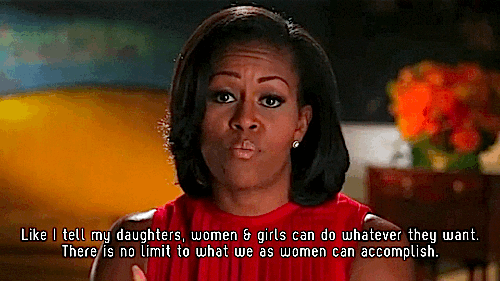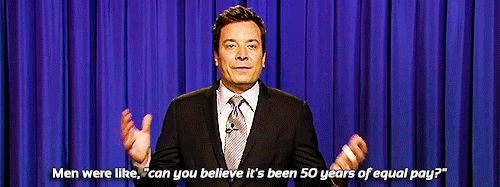Australian Women May Receive Equal Pay As Soon As 2089
Within just 75 years, women will get equal pay for equal work!

It will be another seventy-five years before Australian women will receive equal pay, according to a new report from Oxfam Australia.
The report – named The G20 and gender equality – How the G20 can advance women’s rights in employment, social protection and fiscal policies (seems Alanis Morissette must name these things) – outlines a number of troubling statistics that, while not particularly surprising, still paint a bleak picture of pay inequality.

The most striking finding is that at the current rate of decline in wage inequality, it will take 75 years for women worldwide to receive equal pay for equal work. Other distressing facts brought to light in the report include:
Between A Third And Half Of All Australian Women’s Employment Is Considered ‘Part-time’
This is the case in five G20 countries (Argentina, Australia, Germany, Italy and the UK), and as the report points out, “part-time and informal work affects wages”. This reliance on part-time work, and its lack of security, benefits, etc. is thought to be linked to the heavy burden of unpaid care work that women traditionally take on – an average of a whopping 2-5 hours more than men per day.
The report doesn’t pull punches, stating that women are “effectively subsidising the economy” this way, while estimating the monetary value of this work may be worth over 50% of gross domestic product.

Australia’s Social Protection System Acts As A Disincentive For Working Women
At the moment, our system is set up to support stay-at-home mothers, which is generally considered to be a good thing. However, income tax and a reduction in benefits “can create a disincentive to work” for women, especially those who are considered second-income earners. The report acknowledges “some promising models of policies to support women in the workplace” but also urges “coherence across government policies” and more supportive “tax and social protection”.
There Are “Large Gaps” In Men And Women’s Levels Of Retirement Savings
This gap in retirement savings between men and women is a major knock-on effect of the above situation(s), with retirement fund contributions obviously directly linked to paid work. The amount of women reliant on part time or casual work also furthers this discrepancy.

The G20’s ‘Commitments’ To Correcting The Cause Haven’t Been Tested For Effectiveness
“The G20’s commitments themselves appear not to have been vetted for their likely contribution to women’s economic and social rights or gender equality. This is a major barrier to the advancement of the G20’s inclusive growth and development agenda, including the likely effectiveness of its efforts to promote employment.”
Hmmm. So all G20 action plans implemented to date have been, according to Oxfam’s report, basically guesswork based on nothing much. “These efforts cannot be made in isolation from the reality of women’s and men’s lives”, the report urges in its conclusion.
Aside from the obvious human-rights breaches, the report also highlights another small reason gender inequality might not be such a bad idea: the economic and social future of our planet completely depends upon it.
“Gender inequality is a systemic issue that must be tackled as a core obstacle to development and inclusive growth and, in turn, inclusive growth and development should contribute to women’s economic and social rights as a matter of priority.”
–
The G20 heads of government will meet in Brisbane this November for the G-20 Australia summit. Hopefully they read the Oxfam report – or at least browse it on the long plane-ride over.